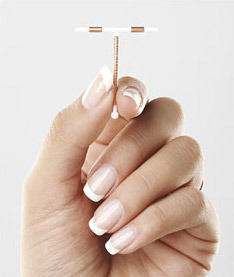- Home
- Editorial
- News
- Practice Guidelines
- Anesthesiology Guidelines
- Cancer Guidelines
- Cardiac Sciences Guidelines
- Critical Care Guidelines
- Dentistry Guidelines
- Dermatology Guidelines
- Diabetes and Endo Guidelines
- Diagnostics Guidelines
- ENT Guidelines
- Featured Practice Guidelines
- Gastroenterology Guidelines
- Geriatrics Guidelines
- Medicine Guidelines
- Nephrology Guidelines
- Neurosciences Guidelines
- Obs and Gynae Guidelines
- Ophthalmology Guidelines
- Orthopaedics Guidelines
- Paediatrics Guidelines
- Psychiatry Guidelines
- Pulmonology Guidelines
- Radiology Guidelines
- Surgery Guidelines
- Urology Guidelines
IUDs more efficacious in diabetics as compared to alternative contraceptives: lesser cardiac complications

New York: Diabetic women who use contraception measures such as intrauterine devices (IUDs) and under-the-skin implants are less likely to have strokes and heart attacks, researchers have found.
The study found these birth control measures are the safest options for women with diabetes rather than using hormonal contraception.
"Clinicians need to get beyond the idea that birth control just means 'the pill'. There are options that are safe and effective for all women, including those with diabetes," said Eleanor Bimla Schwarz, Professor at the University of California - Davis, US.
Physicians have been especially reluctant to prescribe hormonal birth control such as oral contraceptives, transdermal patches and vaginal rings as they contain estrogen and thus increase the risk of heart attacks, strokes and blood clots -- also known as thromboembolism.
For women with diabetes, these risks are two to four times higher, the researchers said.
In the study, the team examined the records of nearly 150,000 women in the reproductive age-group with Type 1 or Type 2 diabetes, to evaluate their hormonal birth control prescriptions and the occurrence of thromboembolism.
The results showed that the contraceptives least likely to be associated with thrombosis were IUDs and subdermal implants, while estrogen patches and progestin-only injections were both associated with slightly increased risks of thromboembolism.
"The next step is to understand the best ways to share this information with women who have diabetes and make sure they are consistently offered a full range of contraceptive options," Schwarz said.
The study was published in the journal Diabetes Care.

Disclaimer: This site is primarily intended for healthcare professionals. Any content/information on this website does not replace the advice of medical and/or health professionals and should not be construed as medical/diagnostic advice/endorsement or prescription. Use of this site is subject to our terms of use, privacy policy, advertisement policy. © 2020 Minerva Medical Treatment Pvt Ltd